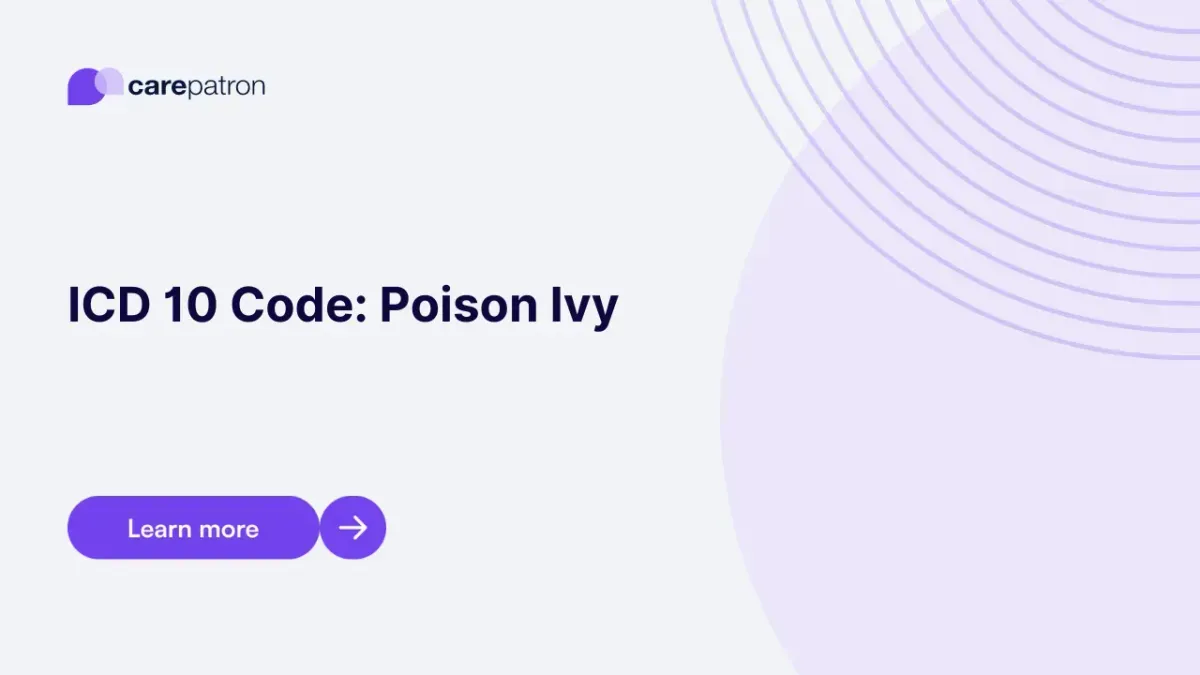
Poison Ivy ICD-10-CM Codes
Learn about the different poison ivy ICD-10-CM codes through this guide.
Use Code
Commonly asked questions
The rash from poison ivy is caused by an oil found in the plant called urushiol.
Avoiding contact with the plant and washing the skin immediately after suspected contact can help prevent the rash.
No, the poison ivy rash is not contagious and does not spread from person to person.
EHR and practice management software
Get started for free
*No credit card required
Free
$0/usd
Unlimited clients
Telehealth
1GB of storage
Client portal text
Automated billing and online payments
